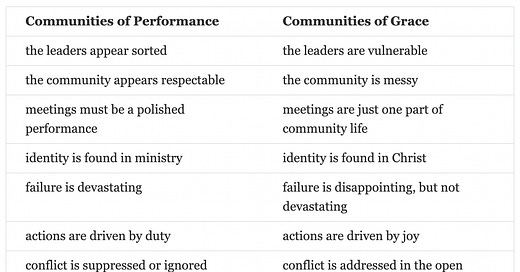
A possible reason why pastor-theologians are "more important" than specialist-theologians in God's Kingdom Enterprise
I want to reflect on a possible reason why pastor-theologians are "more important" than specialist-theologians in God's Kingdom enterprise. The phrase "more important" is not mine but borrowed from D. A. Carson's article entitled, "Why the Local Church is More Important than TGC, White Horse Inn, 9Marks, and Maybe Even ETS."
I want to wrestle with an implication from 1 of Carson's 8 reasons for the church's importance over the the parachurch.
Here's my thesis: As the local church is to the para-church, the pastor-theologian is to the professor-theologian and other specialist teachers for the church.
On the former, D. A. Carson writes,
Indeed, it means a full-orbed teaching ministry, a teaching and living out of the whole counsel of God. Specialist parachurch ministries may have their place-I'll come to that in a moment-but they tend to focus on one or a few areas of biblical truth, sometimes to the exclusion of complementary biblical truths. To take an interesting example, the recent and challenging essay by Andrew Heard, "A Dangerous Passion for Growth," makes a telling point.3 Our passion to evangelize and grow may become dangerous if it becomes so driven by pragmatics that, in the name of winning more people, we start to trim or domesticate the gospel (after all, we don't want to offend anyone, so we'll stop talking about hell), or prove unconcerned about putting the flesh to death, or about sanctification and the building up of the body. But it is the local church that is much more likely to preserve this balance. A parachurch ministry whose goal is outreach is far less likely to perceive the dangers because it does not see itself as responsible for building the entire local church.
Emphasis mine. "Why the Local Church is More Important than TGC, White Horse Inn, 9Marks, and Maybe even ETS" by D. A. Carson in Themelios 40:1, April 2015, p. 7.
Pastor-theologians are generalists. Professor-theologians and professor-scholars are specialists. Being a generalist means pastor-theologians are not as focused on particular specialties. The lack of focus and specialization weakens their expertise on the broad and ever growing wealth of secondary sources on any given area of biblical and theological studies. Therefore, it is wise for pastor-theologians to constantly learn and lean on the expertise of various specialist-theologians.
But their weakness is exchanged for an alternative and advantageous strength: the continual study and application of the Scriptures to the new covenant community, collectively and individually, and to her neighbors in the world today. One might argue that this is the way the Bible is primarily designed to be read.
Pastor-theologians, reading and applying the Bible to the new covenant community, collectively and individually, and to her neighbors and the nations, are (1) less likely to "exclude" or overlook "complementary biblical truths" when focusing on a particular point of doctrine; (2) much more likely to "preserve (biblical) balance;" and (3) far more likely to perceive the dangers of false dichotomies and reductionism because they are "responsible for building the entire local church."
P. S. I used to wonder why every department (Old Testament, New Testament, Biblical Theology, Historical Theology, Systematic Theology, Practical Theology) in the divinity schools and seminaries would feel like their department was the most important. Now I think it is due to the nature of specialization and their limited scope of regular biblical application.
More on the pastor-theologian:
The Pastor as Theologian by John Piper
Kevin Vanhoozer Videos on the Pastor-Theologian (15 videos and an audio link)
A Call and Agenda for Pastor Theologians by Doug Sweeney
Kevin Vanhoozer's 55 Theses on Pastors as Public Theologians
The Pastor as Scholar and the Scholar as Pastor with John Piper and D. A. Carson: Session 1, Session 2, Panel.
Should You Be a Pastor or a Professor? Thinking through the Options by Michael Kruger. I found this taxonomy extremely helpful.
Should Pastors Get a PhD? John Piper Answers
Why I Decided to do a DMin rather than a PhD as a pastor by P. J. Tibayan
The Pastor is a Theologian - Like Harold Ockenga and Jonathan Edwards by Owen Strachan
Light from the Third Great Awakening: Harold Ockenga and the Call to Future Pastor-Theologians by Owen Strachan
Ecclesial Theology and Academic Theology: Why We Need More of the Former by Gerald Heistand
The Organic Intellectual: Why the Pastor-Contextual-Theologian is the Future of Church Leadership in N America by David Fitch




